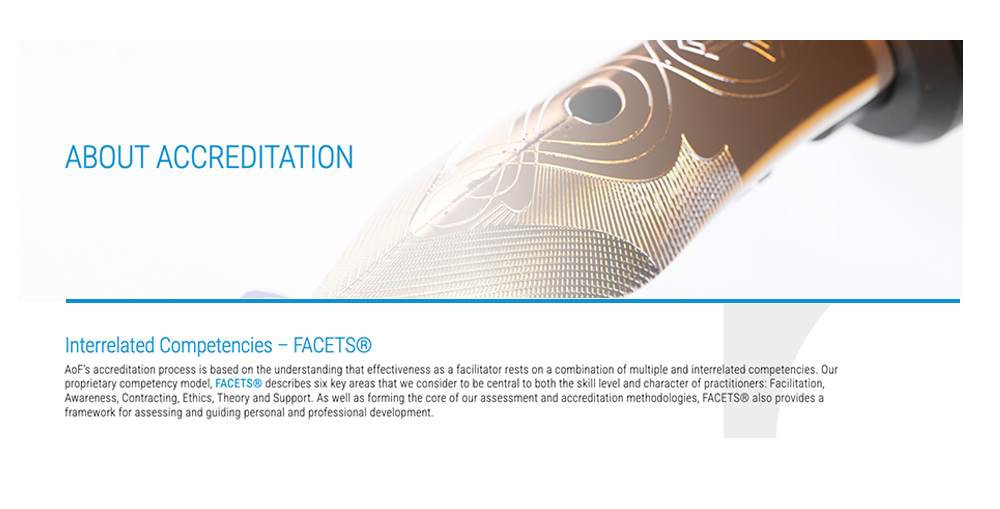WHAT IS GOOD FACILITATION?
Healthy Leadership, Management and Participation
Most of us have been involved in groups that are healthy and high-performing… as well as those that are not. We have experienced the sense of achievement, shared purpose and personal satisfaction that good facilitation brings to groups and organisations (and the misery that can come with unresolved conflict and issues of power and politics).
We have extensive experience of working with groups of all kinds and training facilitators from all walks of life. Our facilitator skills competency model, FACETS® provides for facilitation being a multi-dimensional activity and for the range of facilitation skills profiles that individual facilitators will have.
A manager keeping a newly-formed team on track will rely on a different skill set from an external consultant working with organisational culture change, and as facilitators, our priorities and preferences change throughout our lives.
To achieve excellence as a facilitator you need to continually adapt your facilitation so that it is appropriate to the aims, the needs, the level of experience, the duration and the context of the group.
Training with us is a chance to get beneath the surface of what good facilitation looks and feels like, and how you can develop the tools, techniques, and most importantly the confidence and personal awareness to support the aims of the groups that you work with.
Your Facilitation Style
- can be described and developed in terms of various models and theories (dimensions, modes, interventions, strategies and approaches) and how these are put together in practice
- is also a result of the values and standards you hold, your psychological make-up, your degree of awareness, skill and developmental experience
- relates to the objectives and composition of the groups that you work with
- is part of the norms, values and belief systems expressed in your wider social and cultural context
Above all, your style is about who you are.
Healthy Leadership, Management and Participation
Most of us have been involved in groups that are healthy and high-performing… as well as those that are not. We have experienced the sense of achievement, shared purpose and personal satisfaction that good facilitation brings to groups and organisations (and the misery that can come with unresolved conflict and issues of power and politics).
We have extensive experience of working with groups of all kinds and training facilitators from all walks of life. Our facilitator skills competency model, FACETS® provides for facilitation being a multi-dimensional activity and for the range of facilitation skills profiles that individual facilitators will have.
A manager keeping a newly formed team on track will rely on a different skill set from an external consultant working with organisational culture change, and as facilitators, our priorities and preferences change throughout our lives.
To achieve excellence as a facilitator you need to continually adapt your facilitation so that it is appropriate to the aims, the needs, the level of experience, the duration and the context of the group.
Training with us is a chance to get beneath the surface of what good facilitation looks and feels like, and how you can develop the tools, techniques, and most importantly the confidence and personal awareness to support the aims of the groups that you work with.
Your Facilitation Style
- can be described and developed in terms of various models and theories (dimensions, modes, interventions, strategies and approaches) and how these are put together in practice
- is also a result of the values and standards you hold, your psychological make-up, your degree of awareness, skill and developmental experience
- relates to the objectives and composition of the groups that you work with
- is part of the norms, values and belief systems expressed in your wider social and cultural context
Above all, your style is about who you are.
The Competency Model
Our proprietary competency model, FACETS® describes six key areas that we consider to be central to both the skill level and character of practitioners: Facilitation, Awareness, Contracting, Ethics, Theory and Support. As well as forming the core of our assessment and accreditation methodologies, FACETS® also provides a framework for describing what facilitation is.

